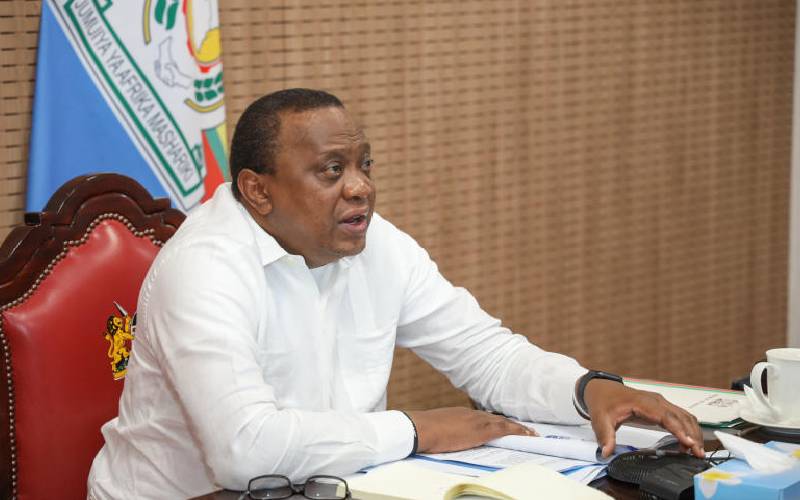×
The Standard e-Paper
Smart Minds Choose Us

From his re-election for a final term in 2017, President Uhuru Kenyatta (pictured) has lurched from one crisis to another. First were the probity gaps in his win, considered illegitimate because his arch-rival Raila Odinga pulled out of what he claimed was a rigged contest. Next came the makings of a fall-out with Deputy President William Ruto. In a diatribe, the president accused Mr Ruto of “kutangatanga,” Kiswahili for loitering aimlessly.